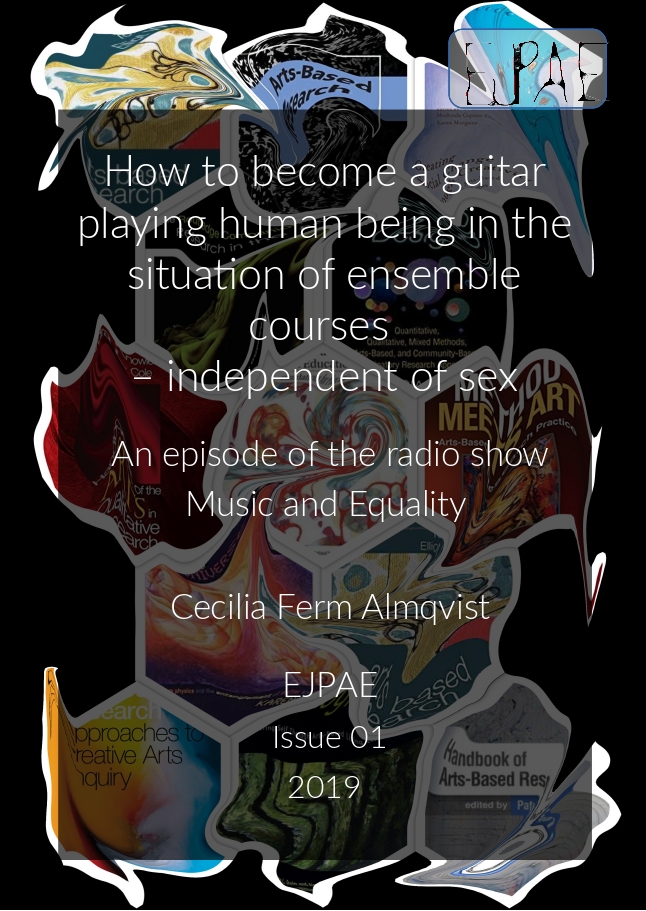How to become a guitar playing human being in the situation of ensemble courses – independent of sex
An episode of the radio show Music and Equality
DOI:
https://doi.org/10.5281/10.5281/zenodo.3572412Keywords:
Arts-based, radio-show, women, becoming, de Beauvoir, Guitar playing womenAbstract
The article will shed light on both the challenges to and possibilities for growth as an ensemble guitarist within upper secondary popular music ensemble courses in Sweden. The paper is a critique of an un-reflected view of popular music as a preferred situation for musical learning in schools. It is intended both as a thought-provoking speech directed to ensemble teachers aiming for equal music education, and as a philosophical exploration of female experiences of ensemble education. The article is based on an existential–philosophical way of thinking, mainly in line with the thoughts of Simone de Beauvoir, both when it comes to the view of human beings independent of sex1 and as a base for how to communicate scientific results in a sensitive situated way. Hence, the format of the article, drawing on Arts-based research philosophy, is constituted as an imagined radio show episode, including a programme leader (PL), two young female guitarists – Anna and Lucy – and one prominent philosopher: Simone de Beauvoir (SdB). The article consists of text as well as a sounding dialogue and drawings. The dialogue is based on interview material combined with studies of primary and secondary Beauvoir literature. Issues that will be explored in the conversation have emerged in an earlier study of the story of one female guitarist: an upper secondary student at a specialist music programme. Issues chosen for the current article shown to be crucial from an equality perspective are; Transcending boys and immersing girls, the male gaze, relations to patriarchal repertoire, possible projects and the role of the teacher.
1 Sex is in line with de Beauvoir defined as the physical difference between males and females. Gender is something human beings become, and in this article the ambition is to start where humans are seen as equal beings, independent of physical prerequisites.

Downloads
Additional Files
Published
Issue
Section
License
EJPAE provides immediate open access to all its published content. Users do not need to register or pay to read content.
https://creativecommons.org/licenses/by/4.0/
Authors of content published in European Journal of Philosophy in Arts Education (EJPAE) retain the copyright to their works. Content is free to be used by anyone as long as you "[...] give appropriate credit, provide a link to the license, and indicate if changes were made. You may do so in any reasonable manner, but not in any way that suggests the licensor endorses you or your use." and "No additional restrictions — You may not apply legal terms or technological measures that legally restrict others from doing anything the license permits." (from the Creative Commons licence agreement)
EJPAE does not charge any author or publication fees.
Authors are encouraged to deposit the final published version of their article for self-archiving (author's personal website) and/or archiving in an institutional repository immediately upon publication.




